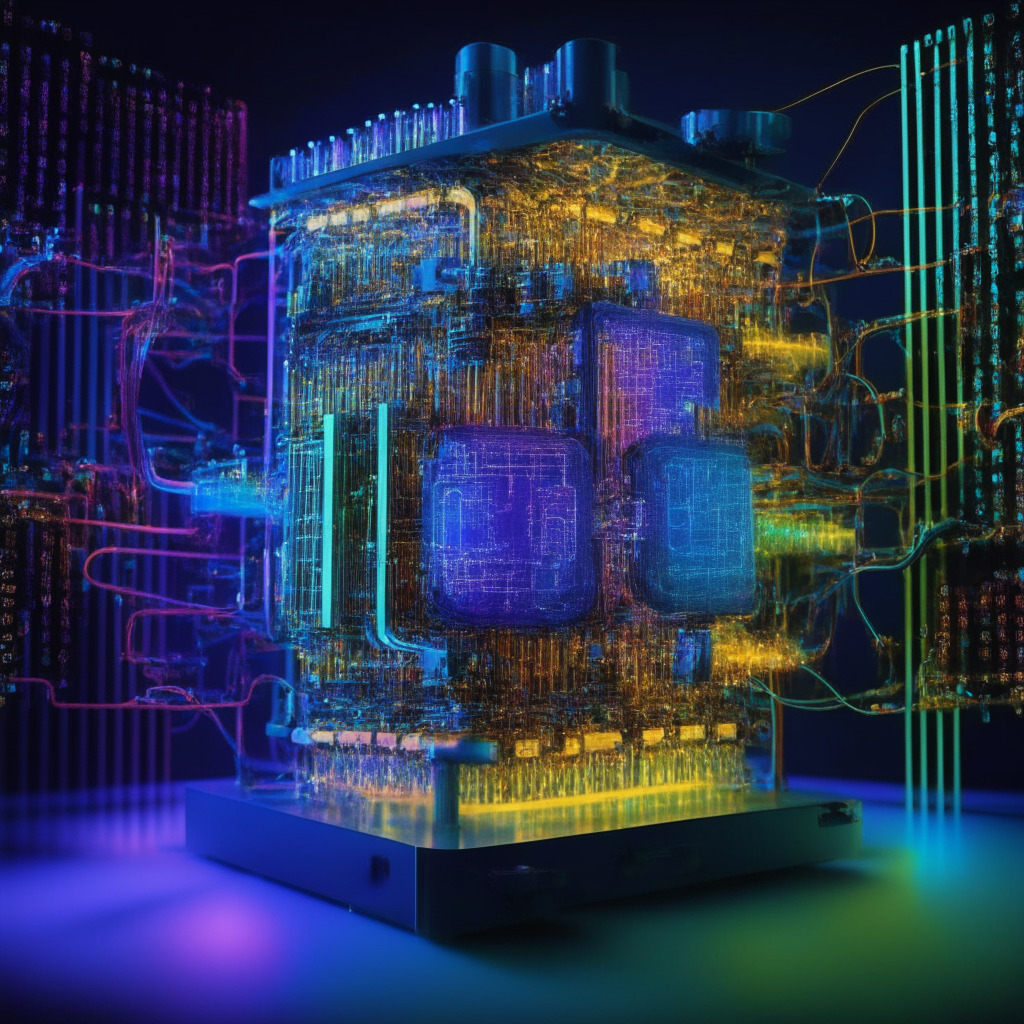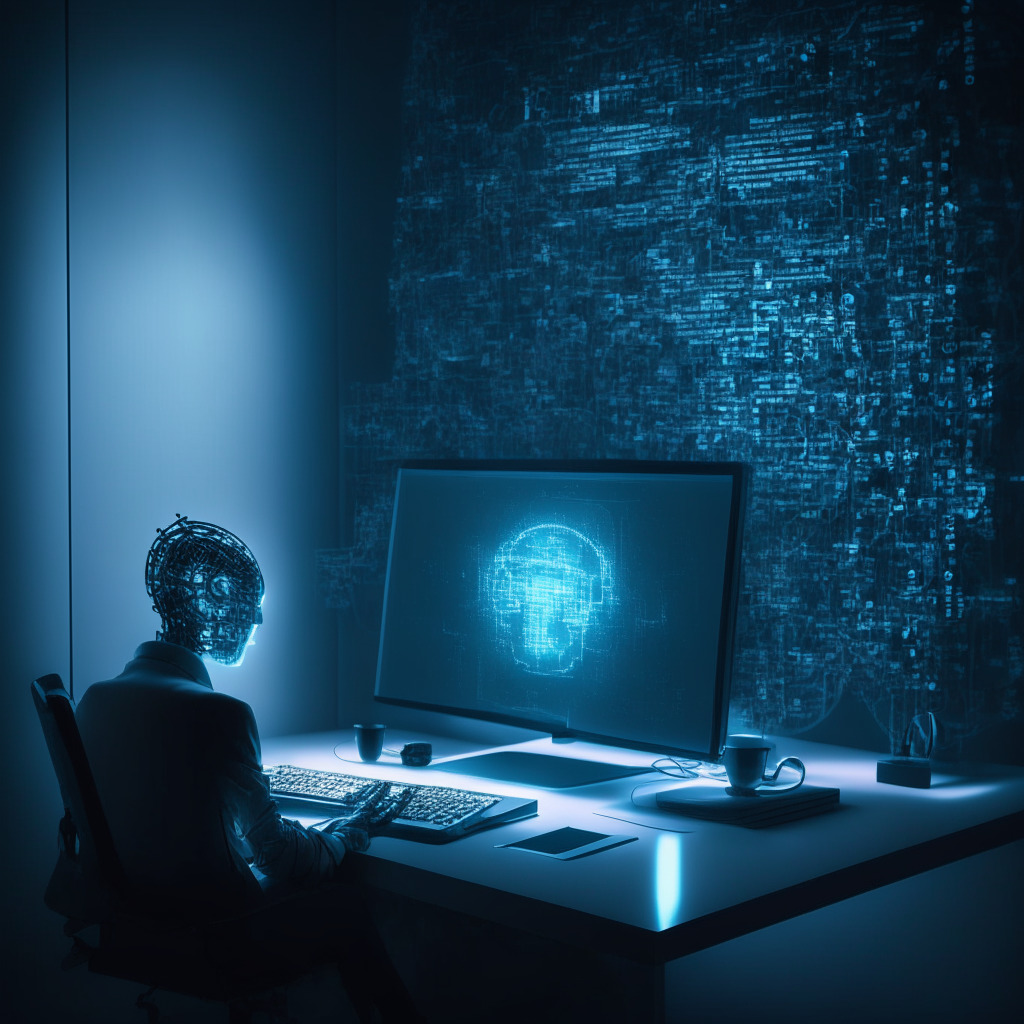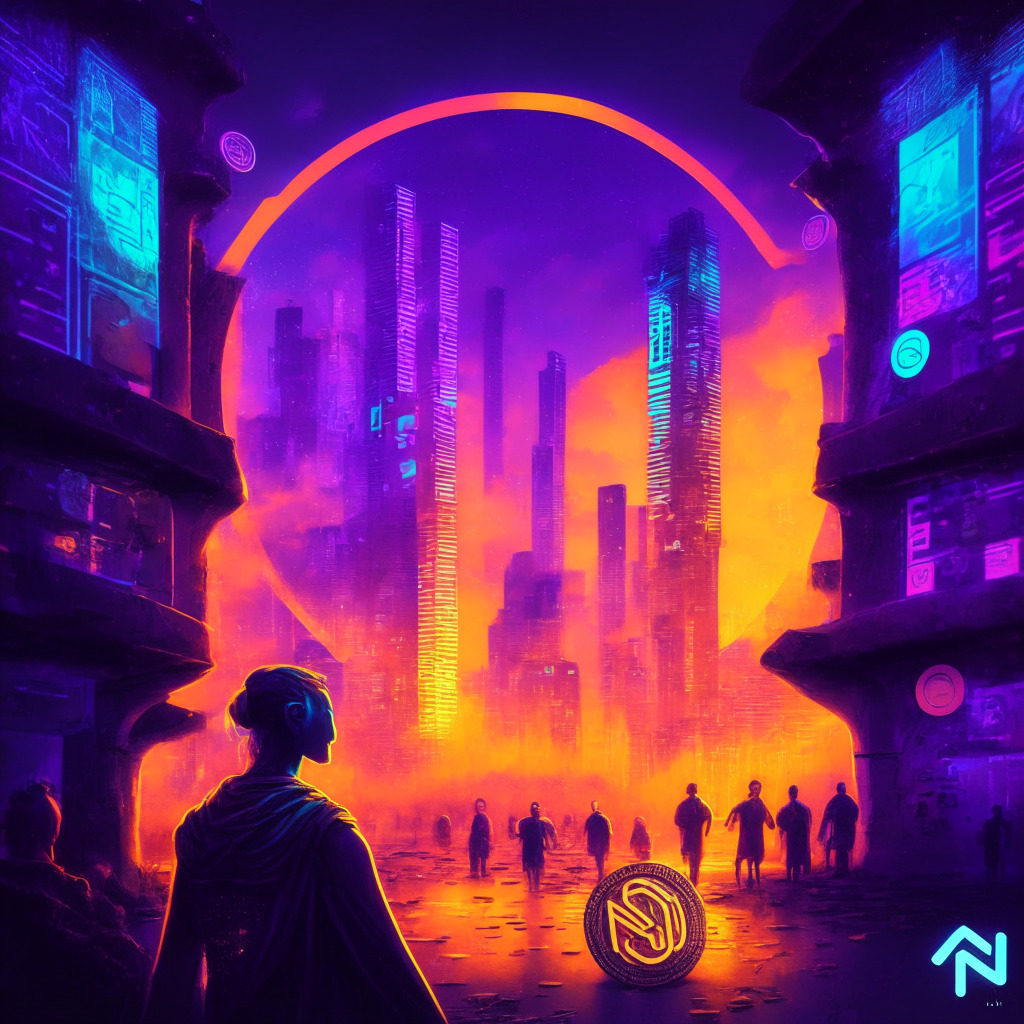This article discusses the history and advancements of artificial intelligence (AI) and its integration into various aspects of our lives while addressing ethical and practical implications such as data privacy, biases, and job displacement. It highlights the importance of finding a balance between AI benefits and potential challenges.
Search Results for: artificial intelligence
The Evolution of Computing: Quantum Leap, Ethical Dilemmas, and Edge Computing
The evolution of computing, from the analytical engine to quantum computers, has created a promising future in addressing complex problems, artificial intelligence, and machine learning. However, ethical concerns regarding privacy, bias, cybersecurity, and societal impact require responsible practices and frameworks to ensure technology benefits humanity.
CFTC Risk Management Review: Analyzing Crypto’s Impact on Swap Dealers and Futures Markets
The US CFTC is scrutinizing risk management regulations, particularly in the digital asset sector. CFTC Commissioner Christy Goldsmith Romero identified cryptocurrencies as a potential risk, citing unregulated spot markets, operational challenges, and prevalence of fraud. She emphasized reevaluating regulatory oversight for digital assets, artificial intelligence, and cloud services.
Title: Blockchain’s Impact on Arts, Culture and Media: Bridging the Divide and Empowering Creativity
Blockchain technology is transforming the art world, addressing artist royalties and enabling underappreciated art forms to gain recognition. Artificial intelligence plays a significant role in this shift, with the blending of arts, culture, and media into the blockchain universe continually evolving.
AI Hallucinations: OpenAI’s ChatGPT, Process Supervision, and the Quest for Accuracy
Artificial intelligence systems like ChatGPT sometimes generate false information or “hallucinations,” raising concerns about factual accuracy. OpenAI is addressing this issue by enhancing ChatGPT’s mathematical problem-solving capabilities with process supervision, a promising method for improving performance and alignment. Understanding the broader implications of process supervision is essential for accurate AI deployment in the future.
AI Regulation in Australia: Debating Bans on High-Risk Technologies and Criteria for Assessment
The Australian government is assessing potential risks associated with artificial intelligence (AI) by launching an eight-week consultation on high-risk AI tools. The consultation aims to gather feedback for promoting safe and responsible AI use, discussing ethical frameworks and possible regulations. This initiative reflects global efforts to understand and mitigate the risks in AI development.
Balancing AI Innovation and National Security: China and US Strive for Tech Dominance
Chinese officials express concern about artificial intelligence (AI) posing national security risks. As AI development accelerates, China pushes for tighter controls and regulatory “guardrails” to manage potential negative consequences, while still fostering innovation.
Democratizing AI Governance: OpenAI’s $1M Grant Initiative for Ethical System Rules
OpenAI will award ten $100,000 grants for experiments in establishing a democratic process for AI system rules, aiming for responsible oversight of AGI and superintelligence. This initiative raises essential questions around AI governance and transparency, with results freely accessible to the public to promote ethical AI conduct and a responsible future for artificial intelligence.
AiDoge Emerges: AI-Powered Meme Coin Revolutionizes Cryptocurrency Landscape
AiDoge, a new meme token with artificial intelligence integration, has garnered attention as it nears the end of its successful $13.5 million presale. Offering a layer-2 solution, reduced fees, and faster transactions, AiDoge’s unique blend of AI and memes creates a meme-to-earn ecosystem that rewards meme-creation with its $AI tokens.
Unlocking AI’s Potential: How Crypto & Security Expertise Can Shape a Safer Future
Combining the security and cryptography expertise from the crypto community with AI technology could lead to useful applications of artificial intelligence while mitigating risks. This collaboration might pave the way towards a multipolar superintelligence scenario, with networks of humans and AI securely cooperating, and can help create AI systems that are both secure and powerful.
AiDoge: Revolutionizing Meme Creation and Profit in Crypto Cosmos – Pros and Cons
AiDoge ($AI), a unique fusion of artificial intelligence and memetic humor, offers a futuristic model of meme-to-earn (M2E) and aims to revolutionize meme creation and profit. Despite the volatile nature of meme coins, AiDoge has surpassed $13 million in presale, attracting investor interest.
Meme Coins vs AI-Driven Crypto: Evaluating Potential and Longevity in the Market
AiDoge ($AI) combines meme coin appeal with artificial intelligence, offering a unique value proposition beyond trending meme status. It utilizes AI to create memes, catering to the online meme community while leveraging advanced technology for relevance and growth potential.
AI vs Humanity: Balancing Benefits and Threats Amid Rapid Development
A recent Reuters/Ipsos poll shows 61% of Americans view artificial intelligence (AI) as a threat to humanity. This concern stretches across industry leaders like Elon Musk and Warren Buffett. Calls for regulation, transparency, and cooperation emerge to balance AI’s benefits and potential risks.
AiDoge: Revolutionizing Meme Culture with AI Technology and Crypto Market Integration
AiDoge combines artificial intelligence and meme culture, using image-generative AI to create memes in response to text prompts. The platform employs machine learning and neural networks, revolutionizing interaction with software and offering a promising growth potential in the crypto world.
Reinventing E-commerce Search: Amazon’s AI Integration, Pros, Cons & Main Conflict
Amazon plans to reinvent online search using advanced artificial intelligence for an interactive conversation-like experience driven by next-generation deep learning techniques. This could improve customers’ ability to find answers to product questions, perform comparisons, and receive personalized suggestions, while presenting potential challenges in ensuring accuracy and reliability of AI-generated content.
MakerDAO’s Endgame: AI Integration, New Blockchain, and the Centralization Debate
MakerDAO’s future involves artificial intelligence (AI) and a new blockchain, according to its recently announced roadmap, “Endgame.” The five-phase project aims to enhance efficiency, resilience, and participation by adopting AI and open processes while maintaining the organization’s decentralized principles.
Navigating Crypto’s Regulatory Limbo: The MechaFightClub Shutdown & Future of Blockchain
The uncertain regulatory environment in the US, driven by the SEC’s intensified enforcement actions, has caused Irreverent Labs to halt development of its NFT game, MechaFightClub, on Solana. The company cites regulatory confusion as a major obstacle to industry growth and plans to pivot towards artificial intelligence projects.
Buffett and Munger’s AI Concerns: The Impact on Humanity and the Future of Technology
Berkshire Hathaway executives Warren Buffett and Charlie Munger express concerns about artificial intelligence’s (AI) rapid advancements and potential harmful effects on humanity. They caution against over-reliance on AI models and reiterate skepticism towards Bitcoin and other cryptocurrencies.
AI Race Intensifies: China’s Battle Against US Sanctions and Global AI Dominance
China is forging ahead in artificial intelligence development despite facing challenges due to US sanctions limiting access to advanced chips. Experiments show promise, and Chinese companies, including Alibaba, are creating innovative AI solutions, encouraging global competition and pushing the limits of current capabilities.
WGA Writers’ Strike: Debating AI’s Role in Writing and Preserving Humanity within Content Creation
The Writers Guild of America West (WGA) strike highlights the growing concerns over the use of artificial intelligence in content creation. The WGA aims to preserve writers’ rooms, secure employment duration, enhance residuals, and minimize AI’s role in the entertainment sector, while addressing the legal ramifications and challenges surrounding AI-generated works.
AI’s Role in the Crypto Market: Paving the Way for the Next Bull Run? Pros, Cons & Influential Factors
The crypto market anticipates a breakout, with artificial intelligence (AI) potentially driving this shift. AI-related altcoin projects like $AGIX, $FET, and $ALI have seen significant gains, possibly leading the charge into the next bull run.
AI in Crypto: Balancing Innovation and Investor Protection Amid Scams and Regulations
This article highlights the recent crypto “investment scam” involving TruthGPT Coin (TRUTH), using artificial intelligence and machine learning claims, and the actions taken by various state financial regulators to halt it. The discussion extends to maintaining a delicate balance between investor safety, responsible practices, and fostering blockchain innovation.
Cyprus’ Crackdown on Unregistered CSPs, Zimbabwe’s Gold-Backed Tokens &Crypto Follies in China
“Cyprus is tightening regulations on Cryptocurrency Service Providers, aligning with international standards and penalties. In Zimbabwe, gold-backed digital tokens are becoming a domestic transaction method with value ensured by national gold reserves. Despite advancements, crypto fraud remains a pressing concern; investors must exercise caution.”
Crossroads of Innovation and Security: EU’s Proposed Regulations on Large-Scale AI Models
The European Union is reportedly discussing stricter regulations on large-scale language models (LLMs) like OpenAI’s GPT-4 and Meta’s Llama 2, aimed at controlling these models without overloading start-ups. These discussions touch on the implications of LLMs, user safety, and ethical AI deployment, mirroring the approach of the EU’s Digital Services Act.
Harnessing AI and Crypto: Legal Strides in Ukraine and the UK Amid Innovation Tensions
“Ukraine’s Ministry of Digital Transformation has announced a roadmap for AI regulatory progress, aiming to prepare businesses for future requirements and ensure ethical AI usage. Meanwhile, major crypto players are adjusting to new financial promotion regulations from the UK’s Financial Conduct Authority, aiming to foster clean and transparent crypto promotions, despite potential challenges for smaller players.”
Understanding Blockchain Regulation Through the Lens of High-profile Crypto Cases
“This article discusses the importance of regulations in the blockchain ecosystem, using the case of Sam Bankman-Fried, facing wire fraud allegations for his investment into an AI startup, as an example. The U.S. government’s stance, allegations surrounding OpenSea and the delicate balance between beneficial and restrictive regulations are also discussed.”
Unraveling the FTX- Anthropic Saga: Prosecutor’s Plea and Its Implications on Crypto Exchange Trials
Prosecutors in Sam Bankman-Fried’s trial aim to block evidence about the current value of FTX’s $500 million investment in AI startup, Anthropic. The government alleges misuse of FTX customer funds with this investment, arguing its current worth is irrelevant to the case.
Cryptocurrency, China, and National Security: Navigating Advanced Chip Export Controls
Republican Representatives Michael McCaul and Mike Gallagher have appealed for stricter enforcement of export controls toward China, concerning advanced chips and their manufacturing tools. Their concern follows the launch of Huawei’s Mate 60 Pro, which uses advanced chips created by China’s SMIC, despite existing U.S. sanctions. They argue that current regulations insufficiently track China’s industrial strategy and military objectives.
Balancing Act: Innovation VS Privacy in Snapchat’s AI Chatbot Controversy
Snapchat’s AI chatbot “My AI” faces scrutiny from UK’s Information Commissioner’s Office due to potential privacy threats to users, including minors. The case highlights the struggle between leveraging tech breakthroughs and protecting user privacy in the hyperconnected social media landscape.
Balancing Act: Supervising AI Vs. Regulating Cryptocurrencies – Who Gets the Upper Hand?
This article discusses a project launched by UNESCO and the Dutch government to study AI supervision across Europe, aiming to develop guidelines from best practices. It also highlights the contrast of some nations focusing heavily on AI regulations, while cryptocurrency protocols, such as for stablecoin transactions, are being neglected. The importance is stressed of striking a balance between embracing technological advances and ensuring proper regulation for consumer protection.
Establishing Authenticity in a Digitized World: Nodle, Adobe, and Linux Join Forces
Nodle has collaborated with Adobe and the Linux Foundation to create a blockchain-based solution, named ContentSign, for verifying the authenticity of real-world content. This kit verifies data integrity from its inception, and could be beneficial for sectors like journalism, where authenticity proof is essential. The technology also faces challenges due to the rapid AI advancements, requiring robustness and adaptability to maintain its effectiveness.
Assessing the Impact of AI and Blockchain Export Controls: Opportunities and Threats for the Crypto World
The European Commission is assessing export controls on AI and semiconductor technologies due to their potential risk, technologically and for human rights violations. Four focal areas for risk assessment are AI, advanced semiconductors, quantum technologies and biotechnologies, influenced by their transformative nature and potential for civil/military fusion.































